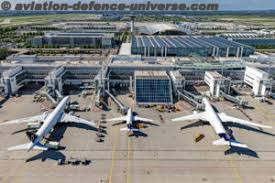- Revenue loss at all airports estimated at Rs. 650 crore per annum
- Increase in Aeronautical charges of around Rs. 200 crore per annum will lead to higher air ticket prices
- Revenue loss at airports will impact Airport Operators’ financial ratings and consequently hamper expansion plans
- Estimated annual loss to AAI Rs. 330 crore
- Job loss of around 8k-10k
- Share of liquor imports for Duty Free sale USD 97 million as against country’s total import bill of USD 460 bn
New Delhi. 21 January 2020. Recent media articles have reported that the Ministry of Commerce & Industry has recommended a reduction in per passenger allowance of import of liquor at arrival Duty Free stores at all Indian airports, along with a complete ban on sale of cigarettes through Duty Free stores.
Association of Private Airport Operators (APAO) an apex Industry Association of the Major Private Airports in India feels, “such a move will have disastrous effects on the Indian Aviation Industry across all stakeholders including airports, airlines, passengers and Duty-Free operators.”
APAO has vehemently opposed the proposed move to reduce liquor allowance from 2 litres to 1 litre and to do away with import of cigarettes presently one carton of 100 sticks.
As per APAO, it will harm the entire aviation ecosystem comprising of airports, airlines, duty free operators and AAI and does not help in any way in improvement in balance of payments. Share of import of liquor for sale to arrival passengers in total import is miniscule i.e. 0.0213%. Even doing away with entire imports will not serve any purpose. The same ministry is recommending reduction in import duty on gold to mitigate illegal import. With the same logic the proposal will enhance smuggling of imported liquor and encourage passengers to buy more at Departure Airports globally, resulting in higher Foreign Exchange outflow.
Another argument given by the APAO is that liquor import is within the overall limit of Rs. 50,000 available to passengers and hence any reduction in liquor quota will result in shift to import of other items thereby making the entire exercise to improve balance of payments ineffective.
APAO elaborated that present limit of Rs. 50000 was Rs. 25000 in the year 2004. Considering Rupee depreciation vis-à-vis USD, of 162% during the said period, in real terms limit is reduced by 23% which will further reduce considering USD inflation.
Typically, passenger charges alone are never sufficient to cover the cost of developing and operating airports and it is non-aeronautical revenue streams such as Duty Free which subsidise these costs. In the present regime of hybrid or shared till mechanism adopted by AERA as per NCAP 2016 increase in non-aeronautical revenue leads to lower aeronautical tariff, thereby passing the benefit to the passengers.
At most Indian airports, Duty Free revenues make up 15-20% of the total non-aero revenues and sales of liquor and cigarettes together account for over 75-80% of overall Duty Free sales and to make up the revenue loss on account of these new restrictions, the Aeronautical Charges will have to increase which will have to be borne by airlines and passengers. It is estimated that the Aero Charges will go up by at least around Rs. 200 crores annually across India which will have an impact on ticket prices and may even impact the growth in passenger traffic which is already extremely subdued.
The revenue loss will also impact the Indian airports financial performance, their rating, ability to raise funding for future expansion and could potentially lead to NPAs with banks.
The reduction of duty-free allowance will also adversely impact Airports Authority of India (AAI) which will not only lose revenue from the airports it operates but also from the revenue share from Delhi and Mumbai airports. It is estimated that AAI would lose over Rs. 330 crores (Rs. 180 Crores from its operations and Rs. 150 crores due to reduction in revenue share payments from DIAL and MIAL). This will reduce AAI’s ability to develop airports in remote and rural areas, upgrade airport infrastructure and regional connectivity which is hallmark of the NCAP 2016.
The GoI after more than a decade has successfully privatized six AAI airports, won by an Indian company and one greenfield airport at Jewar which was won by an international operator. The basis for bidding was per passenger fees, which was primarily expected to be paid out of growth in Non-Aero revenues. If Non-Aero revenues are restricted by an act of government, the new operators will find the airports unviable and may even renege on their contracts. Any future privatization planned by the government will not succeed.
Liquor accounts for majority of sales of duty-free operators. The proposed move will make their operations unviable due to firm commitments towards fixed fee and fixed expenses to be met out of lower revenue base.
It is estimated that 8,000 – 10,000 staff may lose their jobs directly and indirectly by virtue of this decision as there will be layoffs in sales force, logistics, warehousing, transportation, shipping and finance.
The restrictions on liquor and cigarette sales at Indian Duty-Free outlets will induce passengers to buy liquor & cigarettes from foreign countries, and the shift in buying from foreign airports shall kill Indian duty-free industry. At the same time, the restrictions will act as incentive for import of these goods through illicit channels and will result in a herculean task for Customs Authorities to check each and every passenger and there will be shift in focus from checking contraband import gold, narcotics, etc. to liquor.



























































































































